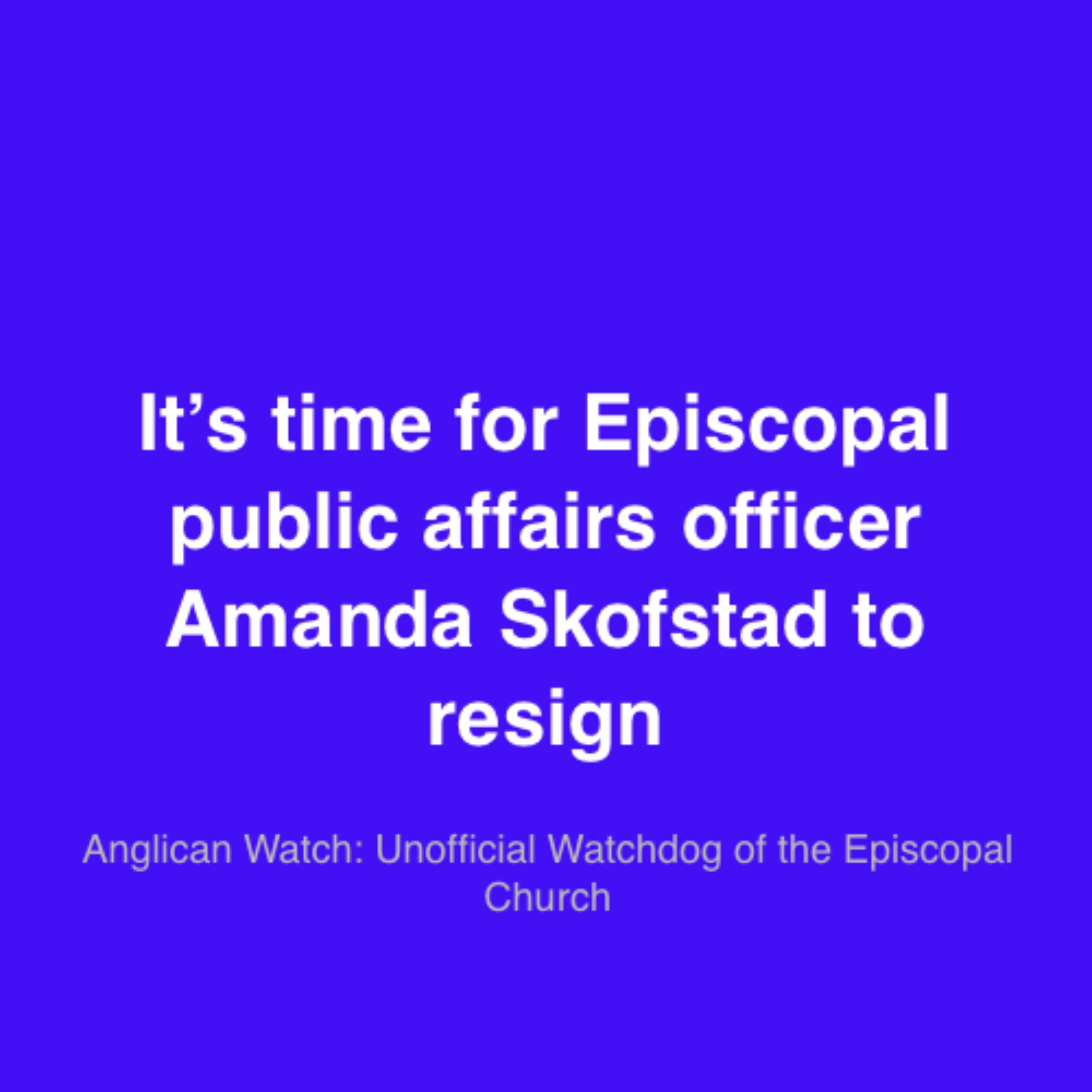Episode Transcript
There’s a big difference between confidentiality and secrecy. Confidentiality is, in appropriate cases, essential for a healthy church. Secrecy, however, is almost always a sign of deep trouble.
Unfortunately, the current discussion at the House of Bishops about Title IV, which is happening largely behind closed doors, is more secret than confidential. As such, it’s unlikely to produce positive change.
Earlier, a leaked copy of the Julia Ayala Harris timeline appeared. A masterful bit of legal puffery, it was prepared by Mary Kostel, the chancellor to the presiding bishop. (That right there is an issue, since one of the issues at play is the presiding bishop’s feckless approach to Title IV.) Not surprisingly, it’s about what you’d expect from an attorney of Mary Kostel’s stature: concise, perfectly proofread, extensive, and only referencing process.
In other words, by referencing process, Kostel’s document is intended to show that the church did its job. But it omits the questions: Was the outcome just? Was the process helpful?
Indeed, without an information about the participants, the results of the investigations, or Brad Davenport’s decision to sandbag the case, we really cannot make sense of the conversation. Nor are members of the HOB likely to get much value from the document.
It’s also worth noting that this is neither an HR matter nor a private dispute. The case is a discussion on the efficacy of the Title IV clergy disciplinary provisions. Thus, transparency is essential.
Root cause analysis
That leads us to parse the root cause of this breakdown in the Title IV process.
Bishops are correct in asking the question, “Should a church attorney be able to unilaterally dismiss a case?” We submit the answer is no. Indeed, why have a disciplinary panel if the attorney is pulling all the strings?
Scratch a little further, and we bump into a second matter, the issue of accountability. The issue looms large in the denomination, and has been flagged as a problem for the past 50 years, particularly around the issue of impairment. But nothing has changed.In other words, a church attorney can simply say, “I don’t want to deal with this,” and that is that. And bishops pull that stunt all the time, including Glenda Curry, Alan Gates, Shannon Johnston, Susan Goff, and Chilton Knudsen, who served on the reference panel.
Third is the church’s tendency towards a nomenklatura. Chilton Knudsen, Brad Davenport, Mary Kostel, Todd Ousley—the list goes on. And they all hold impeccable credentials on issues like same-sex marriage and inclusion. But in many cases, their behavioral track record is appalling. In that regard, we are thinking particularly of Knudsen, Davenport, and Ousley. They may be lovely in person, but when it comes to clergy discipline and accountability, they are worse than useless.
Fourth is the church’s tendency towards tribalism. Criticize the church, and folks man the ramparts, get the boiling oil ready, and get ready to repel the invaders. Thus, despite the church’s roots in the English church, there’s no notion of the loyal opposition. And, of course, the opposite of love isn’t hate—it’s indifference.
On that latter point, indifference, members of the church should ponder and inwardly digest the implications. Given the relatively low percentage of church members in attendance on any given Sunday, and the tens of thousands of people walking away from the church, we’re seeing a wave of indifference as part of the Great Unchurching.
While we’re on the topic, we note that Brad Davenport is not declining to pursue Title IV proceedings in the matter the Rev. Dr. B. Cayce Ramey. Rather than allegations of assault and battery, Ramey decided to quit celebrating Holy Eucharist until the church repents of its role in slavery. Horrors.
We’re mindful of the fact that Ramey is largely grandstanding. Yes, we agree with him that much of the church’s effort to address structural racism is empty transactional solutions, or that favorite Episcopal trick, throwing money at things. But still, we get that he’s largely full of hot air.
So, the Diocese of Virginia is going to spend tens of thousands of dollars playing into Ramey’s hands and building his credentials for his consultancy on ending white supremacy. Sounds to us like someone’s tired of being a priest and wants a leg up on his next career.
Ramey doesn’t want to say Holy Eucharist? Have at it dude. Yes, it’s an occupational requirement to serve as rector. But beyond that, who cares? There’s bigger fish to fry.
Sounds like Davenport needs to worry more about potential gender-based violence and less about building the resumes of priests tired of parish life.
In the meantime, we resort to our usual refrain: Bishops, get a clue. There’s gotta be someone out there who can set that to a show tune.
Or maybe Peter, Paul and Mary’s, “If I had a Hammer.”
“If I had a clue, I’d change Title IV. I’d hold priests and bishops accountable, all over the church. I’d worry less about being PC, more about being honest, allllll, over this churrrcch.”


